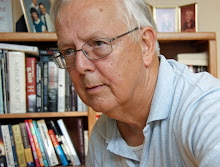Faith ate the last bite of her
watercress while Tom wiped hamburger grease and ketchup from the corner of his
mouth. This was her umpteenth blind date since her divorce went through last
year, and she’d finally found a good man. Tom went to the gym six days a week
and called his parents every Sunday. He’d talked with her about books and
movies and admired Meryl Streep in Iron
Lady. He’d said “It’s about darned time we had a woman president.” He’d actually
said darned. The man didn’t even
swear! He had a square, manly jaw and blue eyes that made Faith think of
Adonis. And did she really see a ray of sunlight glint off those perfect teeth?
The waitress placed the check
between them, and Faith reached into her purse for her Visa card. Dutch was
fine, of course. She expected that. Warmth suffused her face. Oh, to be alone with this man.
Faith looked at her watch. “Well, I
have to get back to work,” she said with a twinge of regret. “I really enjoyed your
company.”
Tom smiled. God, could he smile.
“Me too, Faith. It’s good to get out of the salt mines once in a while.”
She wondered if she should take the
initiative or wait for this terrific guy to speak up. A bit nervously, she
said, “You know, I would really like to see you again. Do you think—?”
“I would, Faith. You’re very nice,
and you’re a great listener.” Tom pushed his chair back, ready to leave without
glancing at the check. “But no. I don’t date fat women.”
Later in the afternoon, Faith
explained these events to the detective in Central Booking, but she couldn’t
explain the steak knife in Tom’s chest.
~~~end~~~










